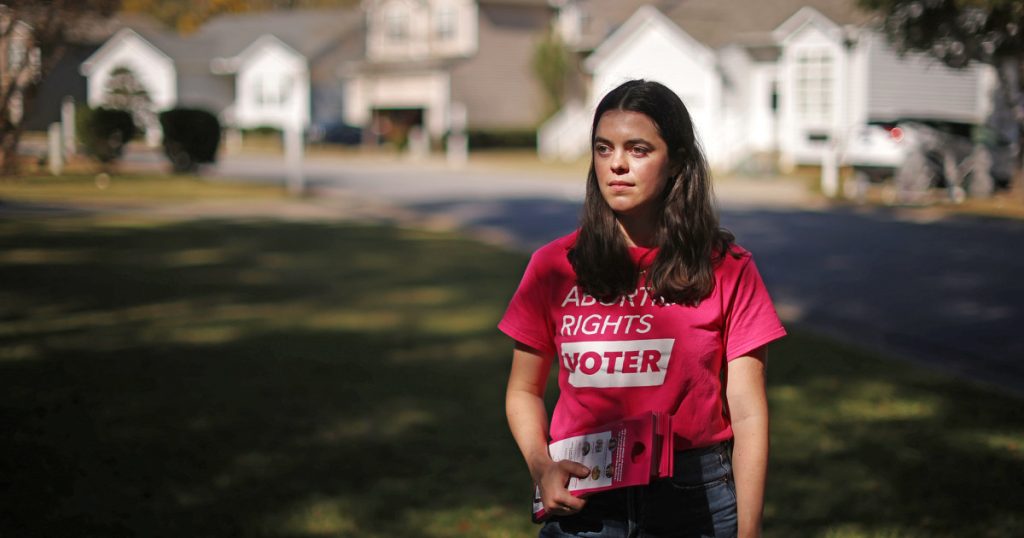Abortion rights activists in North Carolina and across the South are mobilizing efforts to influence voters ahead of the upcoming elections. Despite the absence of a direct ballot measure on abortion, these groups are focusing on motivating voters from the presidential race down to local level campaigns. Activists in North Carolina are aiming to break the Republican supermajority in the state legislature, hoping for a more representative government that aligns with the desires of the people. Similar efforts are unfolding in other states with new abortion bans, where supporters are using the issue to energize voters and promote candidates who are aligned with their views.
Abortion has played a significant role in recent elections, driving voters to the polls and impacting electoral outcomes. A study by the Institute for the Study of Citizens and Politics at the University of Pennsylvania suggests that abortion could be a decisive issue this year as well. Democrats have found it easier to campaign on the issue due to their party’s unity in support of abortion rights. Losing an existing right, such as access to abortion, can be a strong motivator for voters who have seen it as a long-standing law.
North Carolina, where abortions can occur after the sixth week of pregnancy, is facing challenges with a recently enacted 12-week ban that is unpopular among voters. Public opinion shows opposition to the ban, with many residents expressing a desire for more protections for reproductive rights. Democratic Attorney General Josh Stein is expected to win the gubernatorial election, but the influence of his administration could be limited if Republicans retain their veto-proof supermajority, which was instrumental in passing the state’s abortion ban.
In Texas, abortion rights activists are campaigning against conservative judges and supporting candidates who have expressed support for federal protections for abortion rights. There is a strong backlash against the state’s restrictive abortion laws, with groups like Find Out PAC working to unseat judges who upheld the laws. Abortion rights supporters are mobilizing against efforts to restrict access to abortion care, including a proposed ban on using highways to travel for out-of-state treatment. Texas women are voicing their anger and resistance to these restrictive measures.
In Georgia, efforts to support candidates who are committed to increasing abortion access and repealing restrictive laws have been underway. The deaths of women due to lack of legal abortion care have underscored the urgency of the issue and the need for legislative action. OB-GYNs and activists in the state are pushing back against anti-abortion measures and advocating for timely and accessible reproductive care. Abortion rights supporters are hoping for change through legislative action and support from candidates who can advance the cause of reproductive freedom.
Overall, abortion rights activists are working tirelessly to engage voters and promote candidates who align with their views on reproductive rights. Despite the absence of direct ballot measures in many states, the issue of abortion is taking center stage in the political landscape, motivating voters and shaping electoral outcomes. From North Carolina to Texas to Georgia, grassroots efforts are underway to protect and expand access to abortion care and ensure that reproductive rights remain a top priority for lawmakers at all levels of government.












